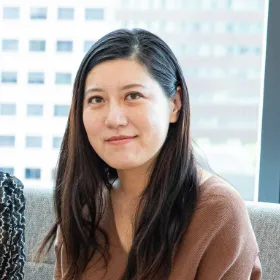
Trade Division, Chemical Products Business Unit
Chemical Products Section 2, Manager
Ms. C (Joined in January 2008)
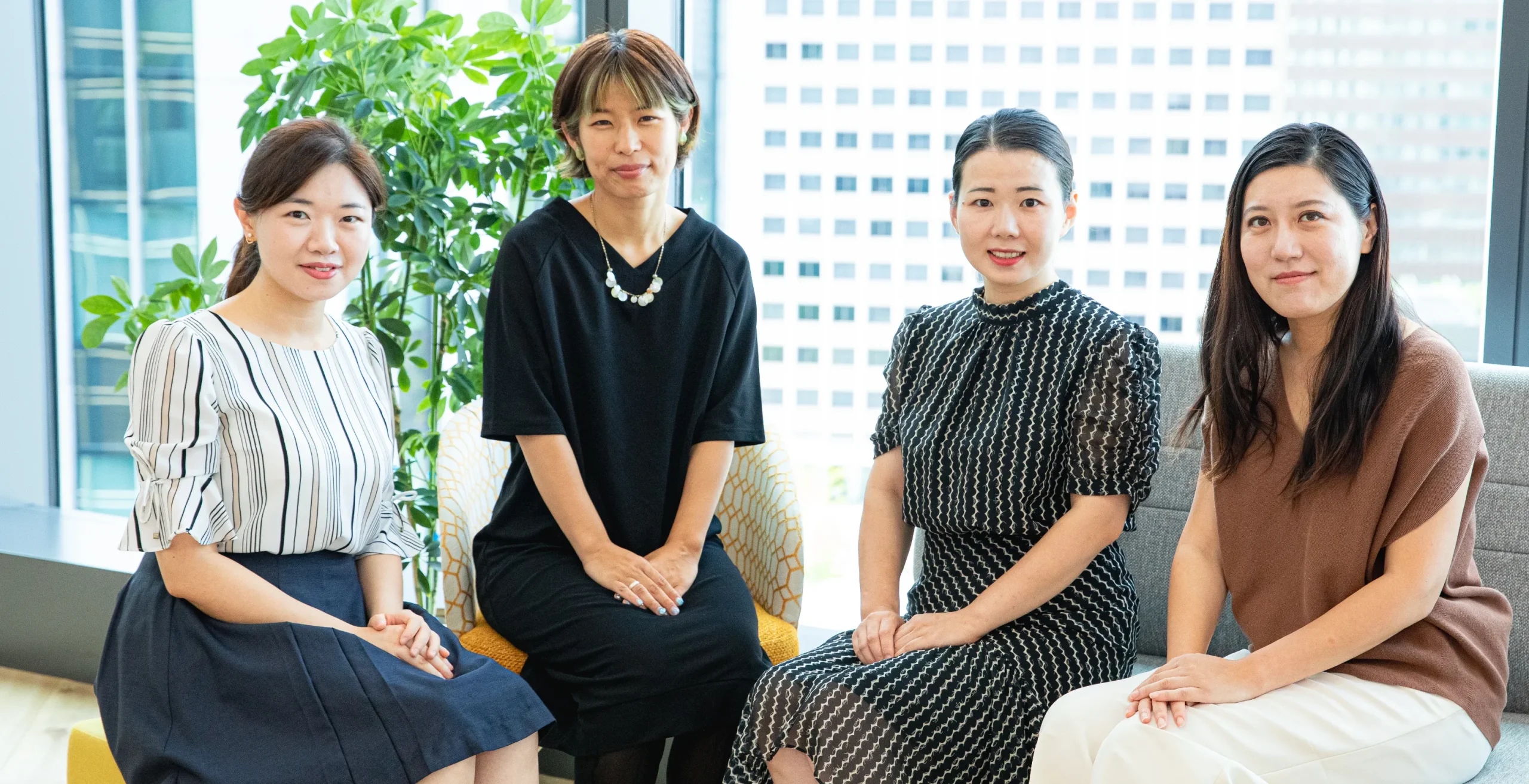
Three working mothers and two female executives from HighChem gathered to discuss HighChem’s culture and work environment from a woman’s perspective.

Trade Division, Chemical Products Business Unit
Chemical Products Section 2, Manager
Ms. C (Joined in January 2008)
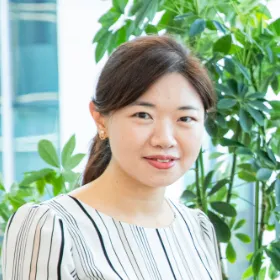
Trade Division, Electronics & Infrastructure Materials Business Unit
Specialist Manager
Ms. H (Joined in August 2012)
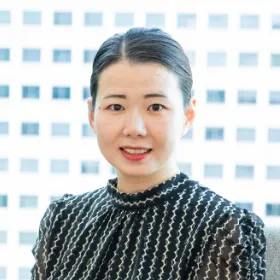
Chemical Products Business Unit Functional Chemicals Department
Ms. D (Joined in August 2014)
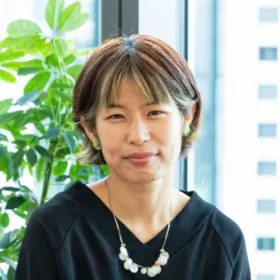
Corporate Division, Operations Department Logistics Development Section
Ms. A (Joined in January 2021)


― Translates to “What do you think of the culture at HighChem?
H: There are many Chinese employees at HighChem. lol
ALL: Certainly! lol
H: Compared to typical Japanese companies, HighChem doesn’t have a rigid atmosphere. It’s a relatively flat organization.
A: That’s true.
H: Another aspect is the close relationship with supervisors. It’s easy to propose ideas, seek advice, and assert our opinions with them.
In many Japanese companies, it’s often challenging to get proposals approved by superiors.
D: Absolutely. If you want to take on a challenge, you usually receive positive feedback. And if you lack expertise, supervisors provide support. They willingly share their networks and ensure transparent communication.
Overall, HighChem supervisors trust their employees and allow autonomy. However, when handling issues like complaints, they step in.
C: HighChem’s salespeople start from scratch, identifying products they’ll handle. From negotiation to actual delivery, they independently manage everything. This includes understanding payment methods and logistics. Each salesperson’s individual strength is crucial.
In addition, the freedom to choose our own themes comes from HighChem’s culture of allowing employees some autonomy. Rather than just doing assigned tasks, we actively seek out what interests us, discuss it with our supervisors, and execute it to achieve results. This natural flow contributes to the company’s growth.
A: Certainly, I feel that everyone at HighChem takes individual responsibility seriously. “Freedom” is something that comes with significant responsibility, in my opinion.
Perhaps that’s why HighChem allows both employees and supervisors the freedom to operate. It’s commendable that HighChem fosters an environment where employees understand the balance between freedom and responsibility.
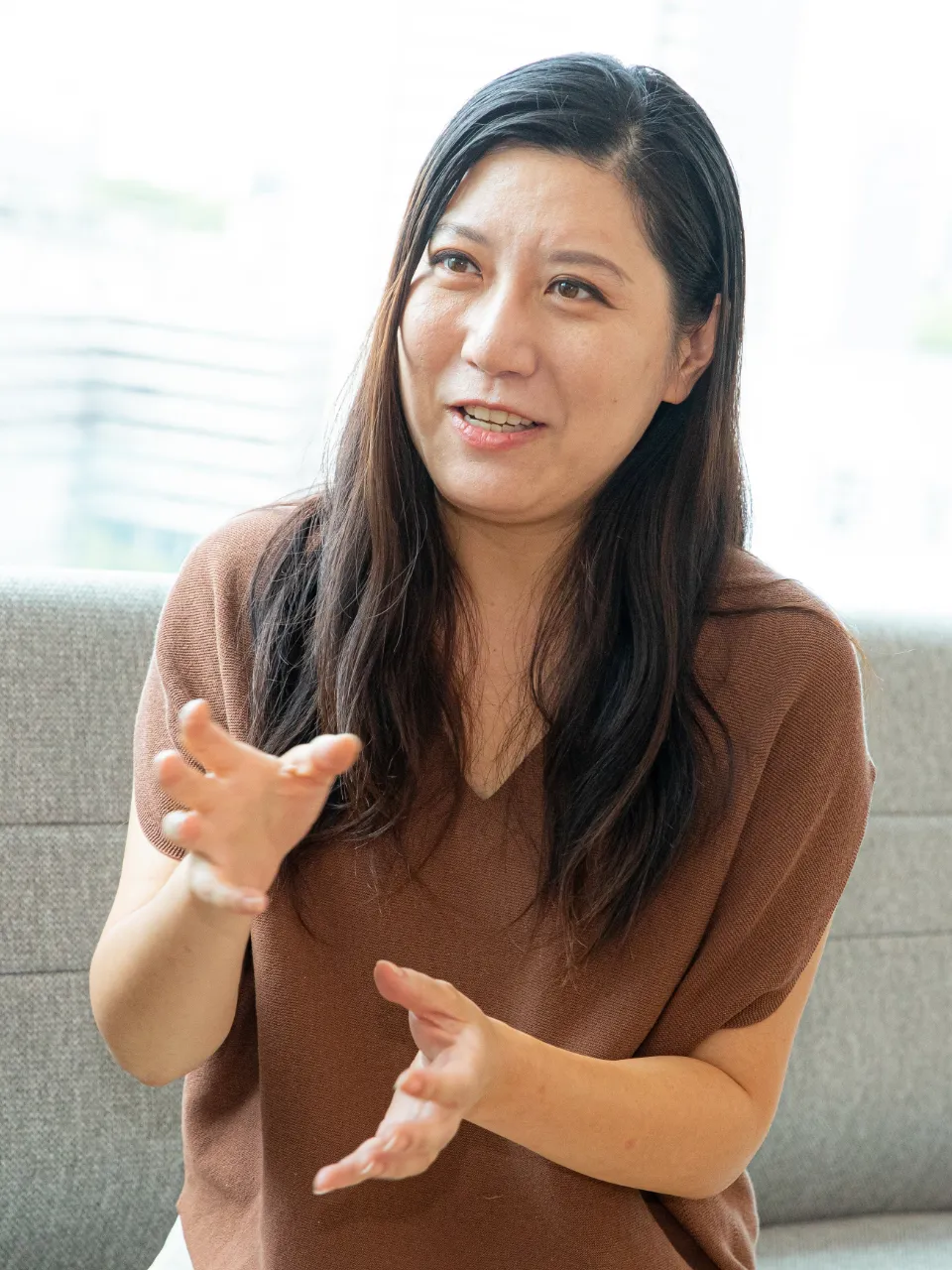
― In short, is HighChem a company where women can work comfortably?
ALL: Gender doesn’t matter, be it male or female.
D: On the contrary, women might be stronger . lol
C: There isn’t much of a supportive role for women. In sales, you’re not a support just because you’re a woman or because you’re from the humanities. It’s all about meritocracy.
D: The cultural aspects of China might also be involved. In China, whether you’re a man or a woman doesn’t matter much in the workplace.

C: I think it’s a workplace that’s also friendly to mothers.
― What do you mean?

C: I have taken maternity and parental leave twice, and after returning, I was able to regain my job and position. Also, when my child was small and had to take time off due to fever, I never received any unpleasant looks from those around me.

D: I returned from parental leave in March this year, and among my Japanese mom friends, there were some who returned to work on reduced hours or were transferred. The good point about HighChem is that everything can be decided by your own will. This includes whether to work reduced hours and whether to stay in sales. It never becomes a situation where, “You can’t do sales work because you have a child.” I think it’s a good company for mothers in terms of career as well.
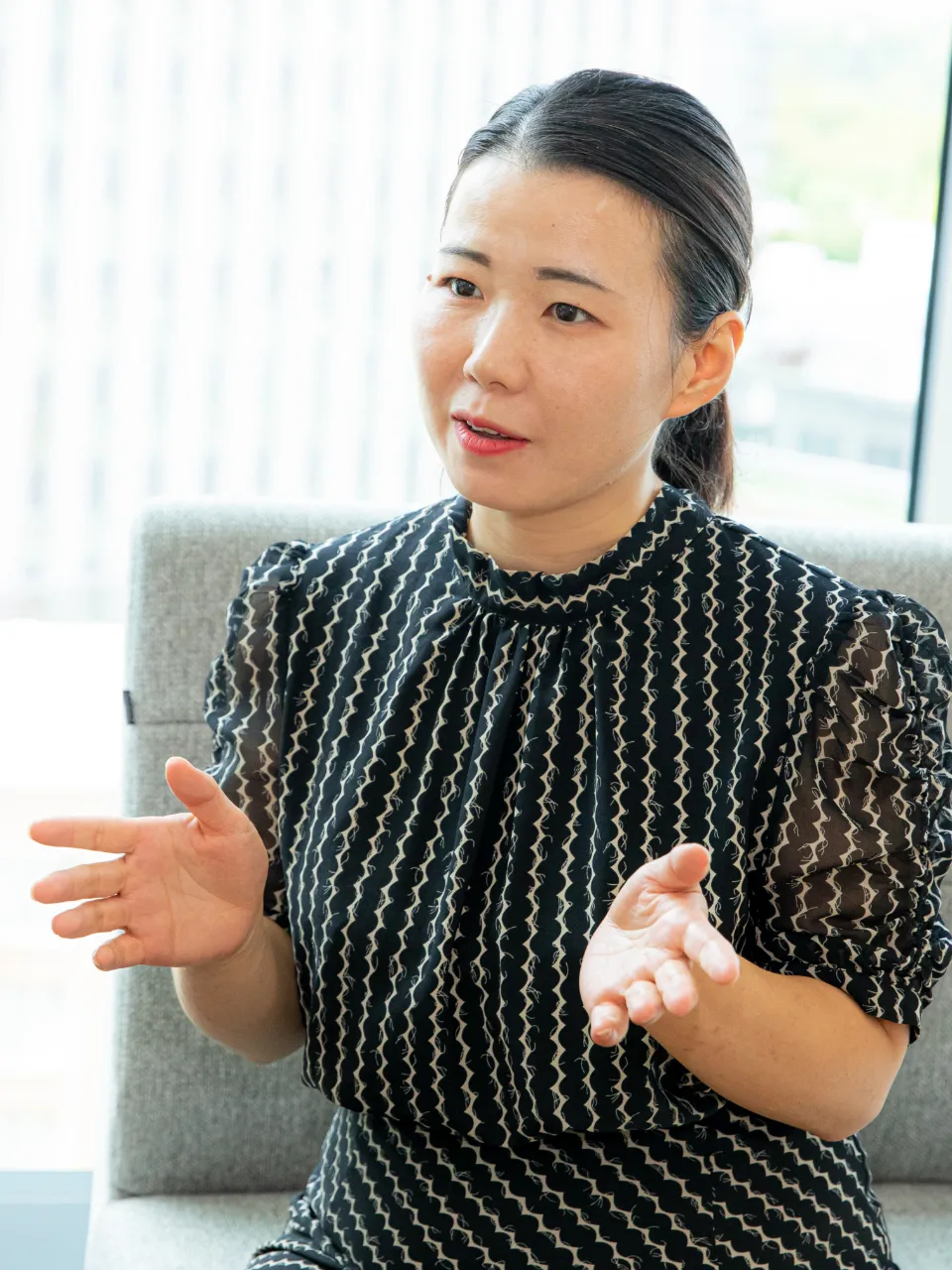
― Ms. C and Ms. D, you both took maternity and parental leave while working at HighChem. How was the work distribution during your leave period and the work after returning?
D: I took maternity and parental leave for 1 year and 2 months and returned this March. The work I was in charge of was shared among the department. What made me happy was that even though the amount of work increased due to my leave, they didn’t dislike it, but rather were pleased. It was because they could get to know new customers and product information, and the communication with customers increased.
― How was the response after returning?
D: After discussions with my boss and colleagues, we rationally divided the tasks that I would take back and those that they would continue to handle. We were able to decide this by mutual agreement.
― In the case of Ms. C, I think you were in a managerial position when you took maternity and parental leave. How was it?
C: In my case, as a manager, it might have been easier because I didn’t have to carry the work. When I came back, considering the connection with customers and other factors, I was really grateful that I could return while maintaining the original theme and position.
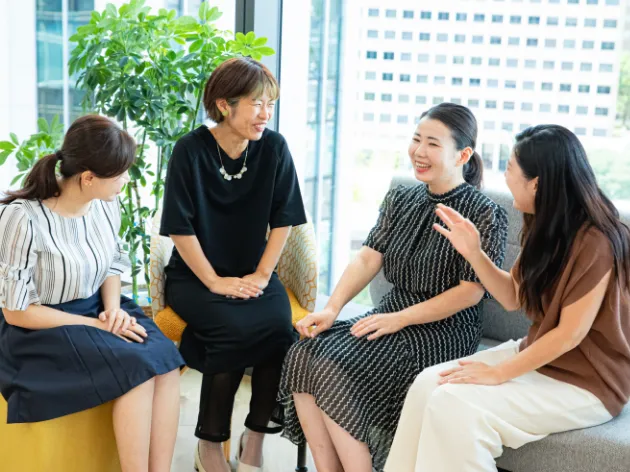
― Are you all utilizing the reduced hours system?

D: I am working full time without taking reduced hours.

C: I also returned to work full time. I think it’s possible because Japanese nurseries are well-established.

A: I am also working full time. There is hardly any overtime at HighChem. I can almost always go home on time.

C: That’s right. I basically don’t do overtime. However, I sometimes take home work that has been left over. I don’t consider it overtime because I take responsibility for my own work. It’s something I can do even outside of the company.

D: I also don’t do overtime and usually go home on time. I also sometimes handle leftover work after my child goes to sleep. Really, as Chen said, I don’t think of it as overtime.

A: The fact that there is hardly any overtime is a good culture of HighChem. Japanese companies have a culture where overtime is assumed. In job advertisements, it’s written as if it’s a good thing, like “about 25 hours of overtime per month”. When I was interviewed at HighChem, I was asked, “Can you work until about 6 o’clock?” Since overtime was not assumed at all, I thought it was a safe environment to work in even if you have children.
― Mothers are entrusted with people’s lives, so there are absolute limits on working hours. The time you can leave your child at a nursery is also fixed.

D: That’s right. HighChem, which doesn’t assume overtime, is really a company that is easy for women to work at.

H: I am the type who does overtime before days off or before business trips. But apart from the earlier discussion about responsibility, I make sure to take breaks at my own pace. In that sense, being able to adjust at your own rhythm is a good point. I am responsible for balancing work and rest on my own.
I heard that it’s hard to take paid leave at ordinary Japanese companies, but that’s not the case at HighChem at all. If your work is properly finished, there’s no problem taking a break anytime. Even if urgent response is needed during the break, it can be handled via the company’s dedicated SNS or phone.

A: Indeed, it’s easy to take paid leave. At my previous company, before the law making it mandatory was enacted, there were terrible times when you could only take paid leave once a year. That also involved reporting the reason to your boss about a week in advance, designating someone to take over during the break, and it was quite a big deal. I couldn’t take paid leave as casually as at HighChem. As a mother, there are many times when your child has a fever and you have to take a break, so it’s really appreciated.
― In the case of sales, do mothers also have business trips to China?

C: Yes, they do. Before Corona, I went to Shanghai with my child, left the child with my parents, and then traveled around China. I couldn’t do it during Corona, but now that my parents can stay in Japan due to having a visa, I can leave my child and go on a business trip.

D: I also have my parents come to Japan.
― In China, grandparents are actively involved in child-rearing, aren’t they?

D: Yes, that’s right. It’s a part of Chinese culture. It’s very helpful when working full-time.
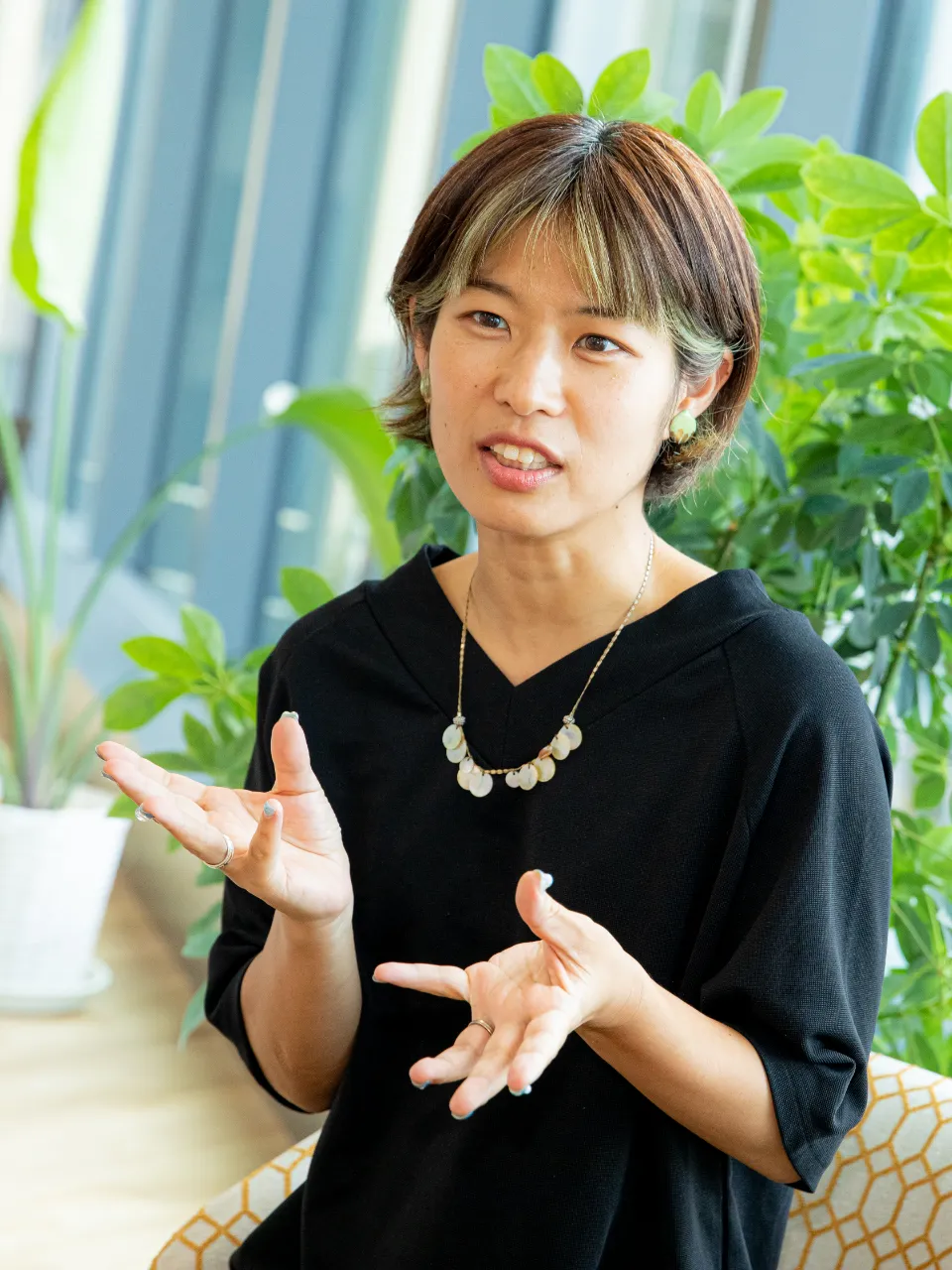
― Do you think there are differences in the way women are viewed in the workplace in China and Japan?
A: In the case of Japan, as is generally said, I think it is indeed difficult for women to work. The number of people who quit after getting married has been decreasing considerably, but I think there are still many cases where women who have graduated from university are viewed with the perspective that they do not want to hire them because there is a risk that they will resign due to marriage or pregnancy.
In reality, when you get married and work, they ask you, “Are you properly taking care of your husband?” When you become a mother, that pressure intensifies even more, and if you participate in a drinking party, it is remarked, “Even though you are a mother,” and if you do not participate, there is a remark of, “That’s why you are a mother.” I think that a considerable proportion of women working in Japanese companies feel that it is difficult to work.
I think there is a strong preconception in society as a whole that “women should be this way”.
― How about China?
C: Originally, both my parents worked, and my grandparents on both sides also worked, so I grew up in that environment.
D: Yes, so generally, grandparents take care of the children, so there isn’t much of a cultural mindset to quit work because of marriage or pregnancy.
C: If you want to work, you should work, and I think there is a track in society that acknowledges that.
― Finally, could you please share your future goals?

C: It’s something I’m always thinking about, but I want to work in a way that makes people around me say, “I’m glad Chen is here.”

H: I’m currently in charge of new business development, and we had a new hire join us this month. My immediate goal for the next 2-3 years is to nurture the new hire while getting the new business on track. And once it’s on track, like Chen and Dai, I want to get married and take maternity leave. lol

D: Yes, since having a child, I’ve felt a strong desire to grow as a person. I’m thinking a lot about why I’m working and what I can show my child as a mother.

A: I’m a Japanese person in a company with many Chinese people, and I have some knowledge of Japanese customs and trade laws, so I want to use that to benefit HighChem’s business. I want to use my power to help HighChem promote new businesses and expand its operations, and to help HighChem grow. There are still many areas where I lack strength, but I hope to grow along with the company.